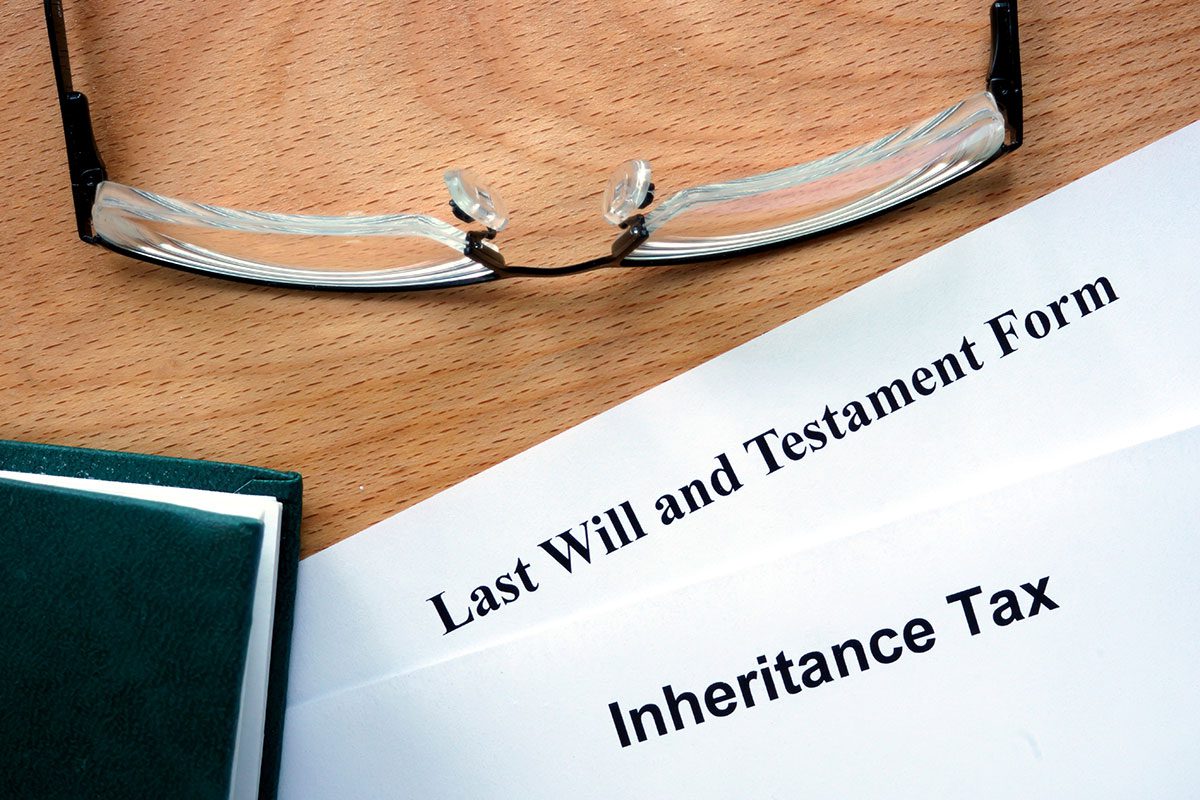Inheritance Tax Planning (IHT)
What is Inheritance Tax (IHT)?
Inheritance Tax (IHT) is a tax levied on the estate of someone who has died. The standard IHT rate is 40% and it is charged by HMRC on the part of your estate that exceeds the IHT threshold of £325,000. There is normally no IHT to pay if either the value of the estate is below the £325,000 IHT threshold or if everything about that threshold is gifted to a spouse, civil partner or to charity. Further information on IHT can be found at https://www.gov.uk/inheritance-tax.
What is Inheritance Tax Planning?
Using sensible planning steps alongside the structure of your Will can help plan for the event of IHT arising as well as mitigate its effect. There can be options within the Will environment or outside of it that can help your family both in terms of correct steps to take in IHT mitigation, or else the simple planning arrangements for paying IHT. Such steps could be as straightforward as making gifts of assets during your lifetime or utilising your annual exemptions. Trusts can be utilised to make best use of gift-making. More complex planning can include taking financial advice on certain products available or investing in business assets, insurance. We can help guide you through that process.
How do we approach Inheritance Tax Estate Planning?
We work with you to create IHT mitigation strategies. We are very thorough in taking details for your Wills and Estate Planning. Details taken include not only your wishes and instructions/intentions as to who you wish to provide for in the event of your death but additionally details on the family circumstances as well as your asset/financial situation. We then prepare you a report that concentrates on your IHT mitigation options. Of course, such information is personal, sensitive and we maintain full confidentiality in how we take that information from you – and it is always taken so as to advise you better in your planning.
What might be relevant Family Circumstances re IHT planning?
Marital status: naturally, current marital status has a big impact on IHT planning as any gifts to a spouse are IHT free. However, it is less well known that a person who was widowed previously might be entitled to utilise an additional IHT allowance;
Intentions as to benefiting family whilst you are alive (rather than by a Will): Most people are aware that making gifts to family will usually bring into play the ‘7 year rule’ and might assist in IHT planning and mitigation. However, it is less well known that if a person makes regular gifts from surplus income will not usually bring the 7 year rule into play – and are effective gifts from an IHT planning perspective.
Intentions as to benefiting charity: Most people are aware that gifts to registered UK charities are IHT exempt (ie no IHT to pay). However, it is less well known that if you gift a minimum of 10% of your estate to charity, the rate of IHT might decrease from 40% to 36%. If you are a person intending on benefiting charity in your will, and had already prescribed a small percentage for that aim, then it might be helpful to increase that percentage to the full 10%.
What might be relevant Financial/Asset Circumstances re IHT planning?
The value of your estate: As part of our Will and Estate Planning review , we will take a schedule of information on your asset position. We create a spreadsheet (which we term an IHT Calculation Document) that sets out your overall asset situation, together with all of the current expected tax reliefs and thresholds. It confirms our estimate of the likely IHT position. It is a working document that can be updated when we together review matters in years to come. Likewise, our clients’ financial advisors and accountants can be sent a copy so that it assists them with their own advice. Working in this way alongside your other advisors is a real benefit that we can offer you for your overall Estate Planning.
The nature and type of asset held: Relevant considerations might not relate to our work but to that of your financial advisor. For example, the IHT calculation document might highlight your current investments being held in non-IHT protection investments and it might be the case that your financial advisor (armed with the information on your likely IHT position) can guide you as to potentially using some of the investments in IHT protection arrangements such as those which attract Business Relief. Those are matters we do not cover within our own work but it can be valuable help to you and your family for us to point you in the right direction for this advice (and all part of our estate planning service).
Business assets: business assets are generally exempt (or part exempt) from attracting IHT. This is largely a policy decision of Government to not penalise businesses (which may of course generate much tax through its earnings as well as its staff). Business owners might feel that they hold their shares in an IHT free environment but the position may well change in years to come if the business is sold (and the assets thus converted to capital) and the value is then part of the estate again for IHT purposes. With careful planning, there are options for mitigating the impact of IHT on those assets. Planning might include making gifts of shares/ownership or using family protection company vehicles or trust arrangements.
Joint asset arrangements: not only are estate planning and trust arrangements influenced by the type of joint ownership arrangements for property and bank accounts but also it can have an impact on IHT payable. Carefully reviewing jointly owned assets can be helpful as part of IHT and estate planning measures.
Property/Residence: Owning a property asset can potentially provide an extra IHT threshold/uplift, which is called the Residence Nil-Rate Band (RNRB) and it can potentially extend the overall Nil-rate Band (or IHT free levels) for a married couple with children up to a total of £1m. This is in keeping with how Government set out a target to ensure at £1m IHT threshold for families. There are rules (not to mention a degree of complexity) in the proper utilisation of the RNRB and particular care must be taken when advising on family trusts to ensure that the options for utilising the RNRB are covered and explained – and steps taken to ensure an estate complies with the legal requirements where it is the wishes of the family to do so. ‘
We hope this gives you a flavour of the matters that are considered with regard to IHT planning.

